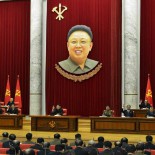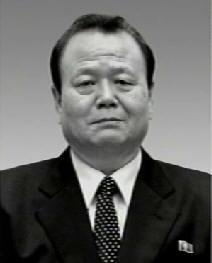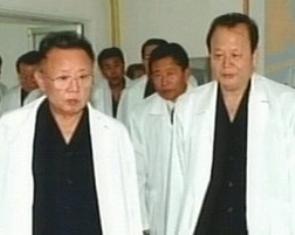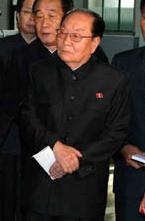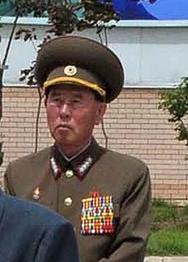12th SPA’s 4th Session Elects New NDC Member, MPS
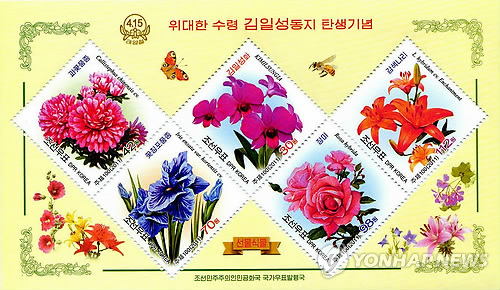
Seen here are stamps recently issued in North Korea to mark the birthday of the late North Korean founder Kim Il-sung, which falls on April 15. (KCNA-Yonhap)
The 4th session (plenum) of the 12th Supreme People’s Assembly [SPA] convened Thursday [7 April] at the Mansudae Assembly Hall in Pyongyang. Neither Kim Cho’ng-il nor Kim Cho’ng-u’n attended the meeting. Defying the speculative pronouncements of numerous observers, Cho’ng-u’n was not elected to the National Defense Commission.
Pak To’-ch’un was elected to replace Cho’n Pyong-ho on the National Defense Commission [NDC]. Prior to his election to the NDC, Pak was reported by the DPRK media on 6 April [Wednesday] having attended Kim Cho’ng-il’s visit to industrial sites in Chagang Province. He was elected in September 2010 to replace Cho’n as the CC KWP Secretary of Military (Munitions/Military Logistics) Industry and before that, served as the Chief KWP Secretary in his native Chagang Province (the locale of many factories that produce arms and equipment).
Cho’n Pyong-ho was the primary organizational architect and for four decades directed the country’s arms industry. When a biographical profile of Cho’n was disseminated in DPRK media in September 2010, he was identified as the Chief KWP Secretary and Political Bureau Director for the party’s organization and apparatus in the DPRK Cabinet.
In the most widely anticipated senior personnel matter to be under taken on 7 April, Yi Myo’ng-su was appointed to replace Chu Sang-song as Minister of People’s Security. Chu was “dismissed” by the NDC, which DPRK reported prior to publicizing the convocation of the 12th SPA’s 4th session. Yi Myo’ng-su has worked as director of the NDC Administration Department since 2007. He was a key member of Kim Cho’ng-il’s military support network, linked to the office of KPA Supreme Commander. Along with Hyo’n Ch’o’l-hae (NDC Director of the Standing Committee), Yi has regularly been seen in attendance Kim Cho’ng-il’s visits, inspections and other events for a number of years.
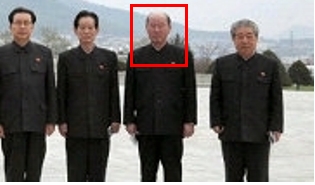
Yi poses for a commemorative photo in May 2010 with other members of the central leadership (Photo: KCNA)
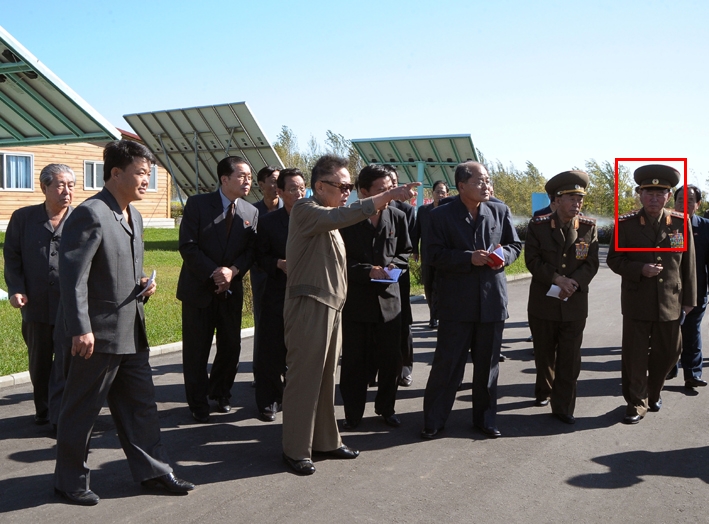
Yi Myo'ng-su (highlighted) attends Kim Cho'ng-il's visit to the Central Tree Nursery in Pyongyang in 2009 (Photo: KCNA)
Prior to his 2007 appointment in the NDC apparatus, Yi served for a number of years as director of the KPA General Staff Department’s Operations Bureau where he interacted regularly with a number of leaders in the KPA’s service commands. From 1993 to 1996 Yi was chief of staff of the KPA III Army Corps (which defends Pyongyang’s outer environs from South P’yo’ngan Province) where he served under Chang So’ng-u, the late older brother of NDC Vice Chairman Chang So’ng-t’aek.
Yonhap (via Korea Herald) reports on the personnel changes:
North Korea usually holds a parliamentary session one or two times a year to assess spending and accomplishments of the previous year and to approve the current year’s budget.
The North’s official Korean Central News Agency did not say a word about Kim Jong-un in its several dispatches on the parliamentary session.
Instead, KCNA said the rubber-stamp legislature named Ri Myong-su as minister of People’s Security, which had been vacant. It also appointed Pak To-chun as a new member of the defense commission, replacing Jon Pyong-ho, who was transferred to other unspecified post. Jon had been deeply involved in the defense affairs.
Kim Yong-hyun, a North Korea expert at Dongguk University in Seoul, said that Kim Jong-un not being promoted doesn’t mean there is any problem in the power transfer, but it could be aimed at paving the way for stable power transition.
“The North appears to moderate its pace in handing over the power,” Kim said, noting leader Kim Jong-il is still in charge.
Xinhua’s English service reports about another example of how Kim Cho’ng-il detests large meetings (and bequeathing this trait to Cho’ng-u’n?) and the 12th SPA 4th session’s other business:
The DPRK’s top leader Kim Jong Il and Kim Jong Un, vice-chairman of the Central Military Commission of the Workers’ Party of Korea, did not attend the fourth session of the 12th Supreme People’s Assembly (SPA) Thursday, the official Korean Central Television reported.
The agenda of the session, held at Mansudae Assembly Hall, included discussion of the work of the Democratic People’s Republic of Korea’s (DPRK) cabinet in 2010 and its tasks in 2011, the implementation of the national budget in 2010 and the mapping out of the national budget in 2011.
Premier Choe Yong Rim made a report on the Cabinet’s work. He said light industry and agricultural production had dramatically improved last year.
Big successes were also made in development of science and technology, cultural construction and other fields, he said.
He also stressed the need to remarkably increase the production of consumer goods and grain to “bring about a decisive turn in improving the standard of people’s living.”
Pak Su Gil, vice-premier and minister of finance, reported on the national budgets.
He said the national budgetary allocations for light industry and agriculture in 2010 increased 10.9 percent and 9.4 percent, respectively, year on year.
Huge funding would go to light industry and agriculture this year, he said, adding 15.8 percent of the total national budgetary expenditure this year, the same as last year, would be spent on national defense.
